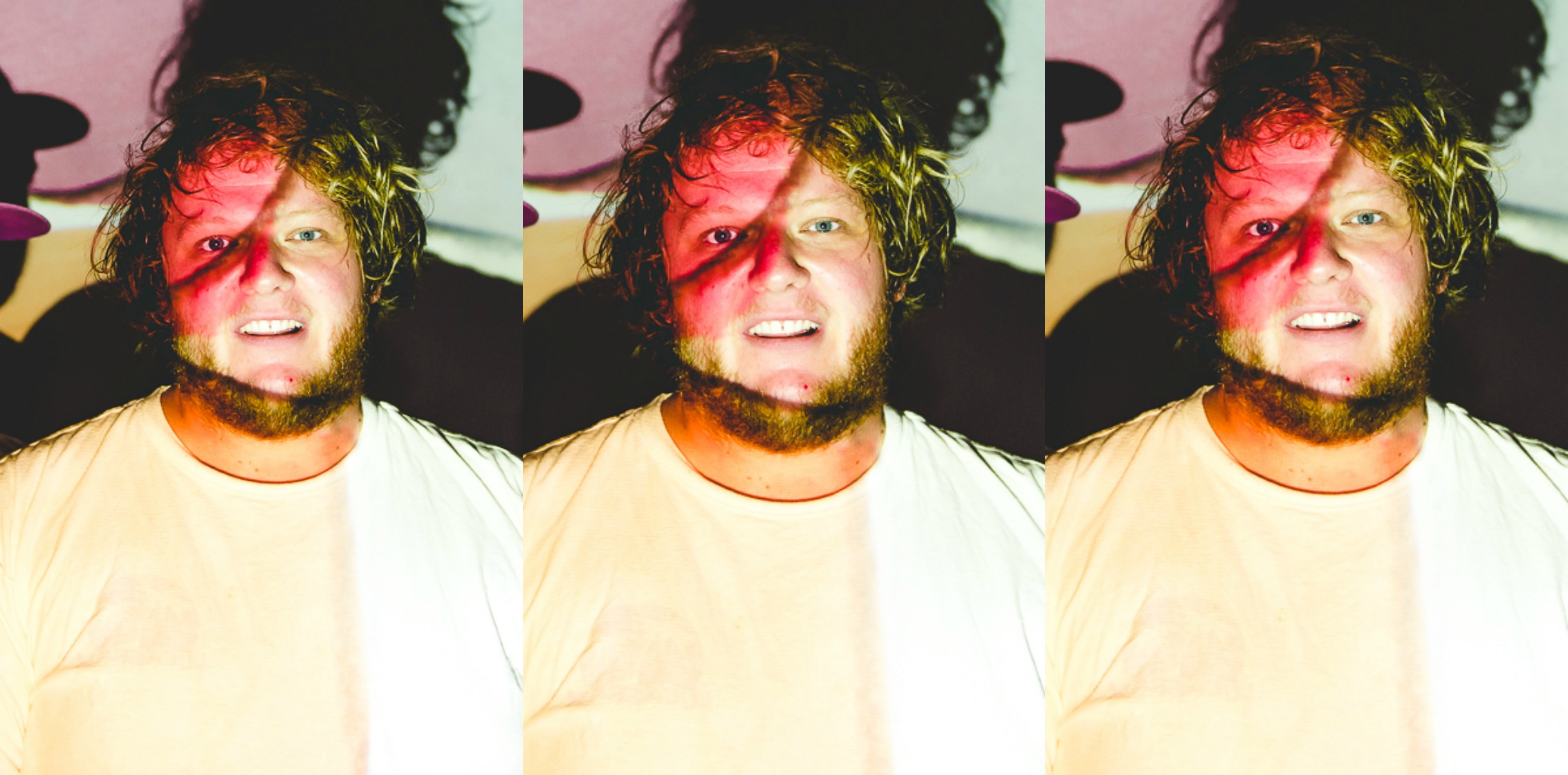If Taylor Swift had an Australian contemporary, it would be Wil Wagner.
Over four albums as the frontman of Melbourne punk outfit The Smith Street Band – plus a handful of solo records, demo tapes and EPs – he has laid bare a blend of hopes and disappointments, allowing himself to believe in the romantic potential of something new while admitting to the inevitability that any infatuation will likely falter eventually.
Just as Swift reached her peak as a self-aware lyricist with 2014’s 1989, Wagner’s years of documented trying, hoping, failing and learning have coalesced with More Scared Of You Than You Are Of Me, The Smith Street Band’s newest and most confident record, which debuted at #3 on the ARIA chart the day before I caught the train to Footscray, in Melbourne’s inner-west, to speak to him about it.
“One day there’ll be a song about you”
The record – which Wagner has described as a concept album – charts the course of one single relationship, from hopeful flirtation through its self-implosion, before ending with it in the rearview mirror and the potential for something new on the horizon.
Over the course of 12 songs, “I just want you to let me love you” becomes “I will let you kick the shit out of me”; the optimism that it would work out is replaced by the admission that maybe we moved in together too fast and the acceptance that a broken thing shouldn’t always be mended. It’s about summoning the bravery and vulnerability required to invest your hope into the idea of something that will ultimately destroy itself, chronicled in real-time.
“I was writing while I was in it,” Wagner says, when I ask if he gave himself distance from the relationship before exhuming it and taking it apart.
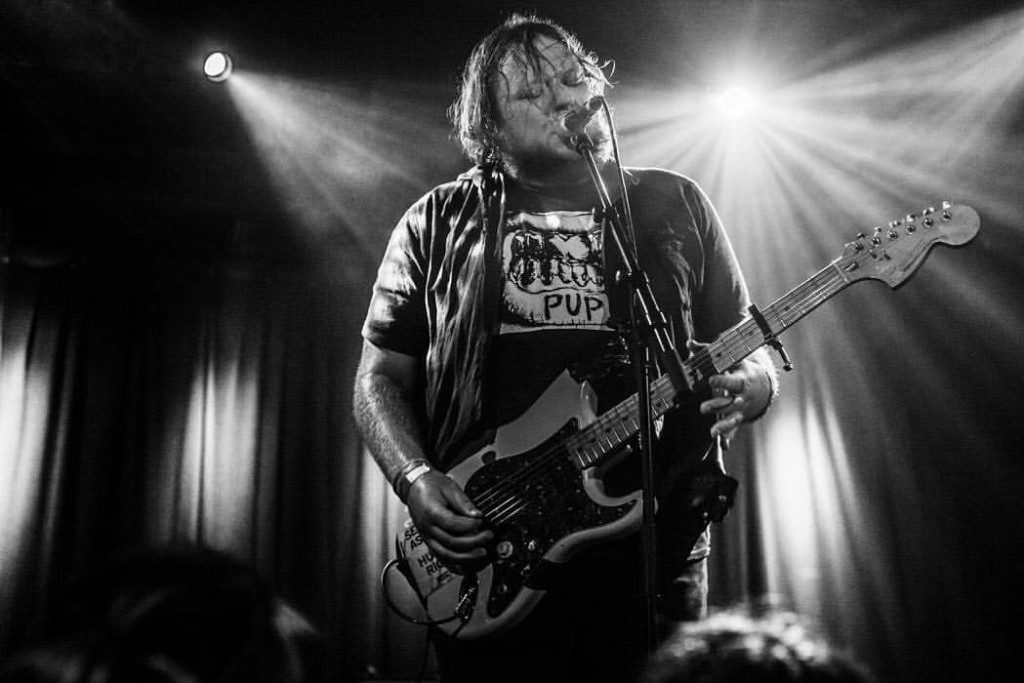
Photo credit: Sian Sandilands
Aside from the two singles released to date – ‘Death to the Lads’ and ‘Birthdays’ – and the album’s quiet conclusion, ‘Laughing (or Pretending to Laugh)’, the rest of the album’s nine tracks were written in chronological order while the fights were fresh and the cuts hadn’t yet healed into scars. “I find it very therapeutic. There’s one song on the record, ‘25’ – I remember waking up after we’d been fighting all night, sneaking out of the room trying to not wake [my ex-girlfriend] up, going upstairs and bashing that out, then coming down to have breakfast.”
I wonder, at what point did he know this hurt and heartache would become an album – after track four, when he was already feeling like the “villain” in the screenplay version of the romance? Or during the disagreements cast in the amber of track nine, the revealing ‘It Kills Me To Have To Be Alive’, where he admits to burying the things he wants to say because he knows enough to know they will be misheard or misinterpreted?
It feels borderline self-destructive, like agony for the purpose of art. “It’s that tortured artist thing,” he tells me. “[Writing about it] helped me to wallow in it. I’m getting all of this great material out of this crazy love! Which is a really unhelpful thing and has prolonged negative experiences of mine.”
“I’ve always been the one who cares too much”
When I first heard More Scared Of You Than You Are Of Me, I’d just finished the final round of edits on my first book, a memoir that’s as much about me as it is the people who’ve weaved in and out of my life, and was nervously anticipating their reactions to reading my singular perspective on things we shared together.
As someone whose writing covers similarly subjective terrain, I was curious to know how Wagner confronted the fact that the people he wrote about – in the privacy of his bedroom or the safety of the back of a van – would someday hear what he thought and felt about them, playing from a record or amplified on a stage.
“It’s something I think about a lot,” he says, “I don’t think I’ve ever said anything in a song that’s nasty or mean; I’ve said stuff that’s angry and maybe isn’t flattering. But I don’t think I’ve ever said anything that the person the line’s about could ever say, that’s just not true. I don’t think that I ever would. I don’t think I’m a nasty person? I guess? Maybe I am. I don’t think I am.”
Wagner’s willingness to use ultra-personal lyrics has drawn praise from critics and fans ever since his 2008 debut solo record, Us Boys Run – released as Wil Wagner and Friends, before “and Friends” became “and the Smith Street Band”, before he removed his name from the marquee and the band became a unit, with Chris Cowburn, Lee Hartney and Michael Fitzgerald by his side rather than behind him.
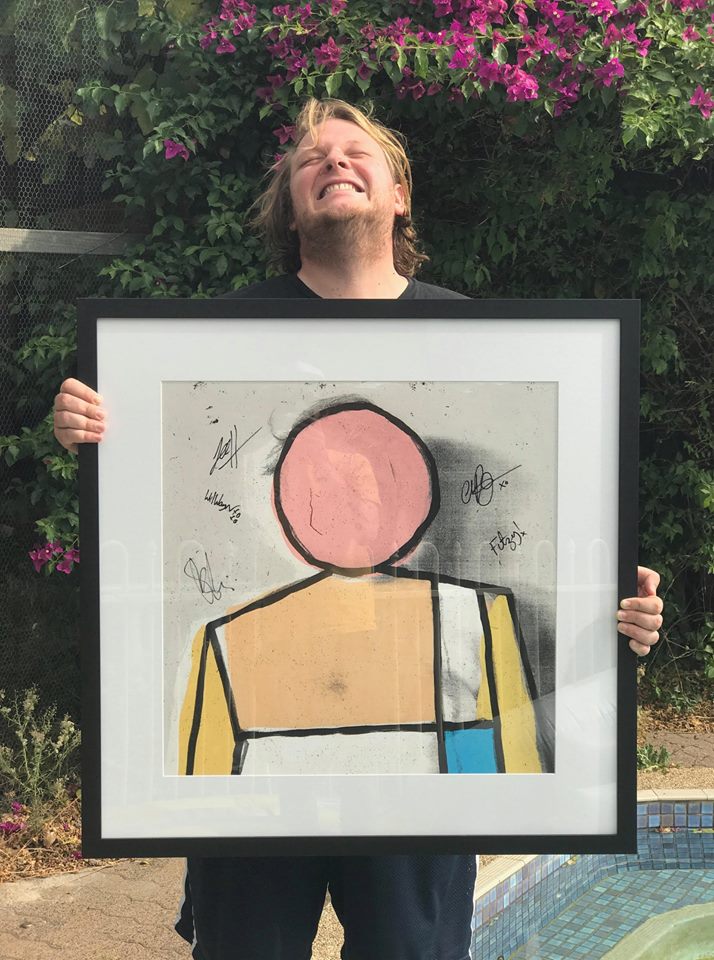
But that narrative has only gotten louder with the release of More Scared Of You Than You Are Of Me, which performs an autopsy on male vulnerabilities. Through unearthing his fears about love alongside his unbridled anger towards his former partner – the repeated line, “You’re the worst thing that ever happened to me,” growls across the track ‘Suffer’ and is terrifying in his naked honesty and fury – Wagner both asserts and destroys machismo.
The wide-eyed response about how vulnerable he allows himself to be is, he says, almost patronising. “It’s like, oh you’re okay to talk about this stuff? I’m not a very masculine person but I think so many of the problems that men create in society stem from being young and not being able to express fear, not being able to express anxiety, not being able to express sadness. And when that stuff gets bottled up, it comes out as aggression.
“I think so many of the problems that men create in society stem from being young and not being able to express fear, not being able to express anxiety, not being able to express sadness”
“Our audience is predominantly young dudes, and I want to start doing talks and saying, ‘here are some ways that you can channel these feelings of anxiety and depression and anger into things that are positive, before they become bigger issues’.” As he spells out this vision, he’s the most concise and certain he’s been since we started talking an hour earlier.
“We sang ‘Death to the Lads’ as loud as we possibly can”
It’s ironic that this person — who is so aware of the way masculinity manifests itself in these ways, has seen it play out in his personal life and in certain crowds with certain people, and wrote an impassioned anthem on the topic – has become, to some commentators and detractors, the lightning rod for crowd violence.
Through standing on stage singing the things young men are conditioned to believe they shouldn’t think or say aloud, Wagner has become indirectly responsible for the select few in those crowds who might choose their fists or elbows or boots to do all their communicating for them.
“I used to hate it too, when we first got on triple j and our crowds were a different kind of person – and it’s not just dudes, it’s everyone – behaving differently, in a way that me and my friends wouldn’t behave. I was pretty against that in general. But now I want people from everywhere at our shows so I can talk to them about this shit.”
From the time I first saw him as a solo teenager eschew a microphone to scream his pain to a quiet Thursday night crowd at the Old Bar, to the sold out show at the Hi-Fi Bar where the Smith Street Band supported Violent Soho and my body became collateral damage as fans ploughed to the front of the stage when they heard the opening plucks of ‘Young Drunk’, I’ve watched the reaction to Wagner’s music crest like a wave that refuses to break for almost a decade now.
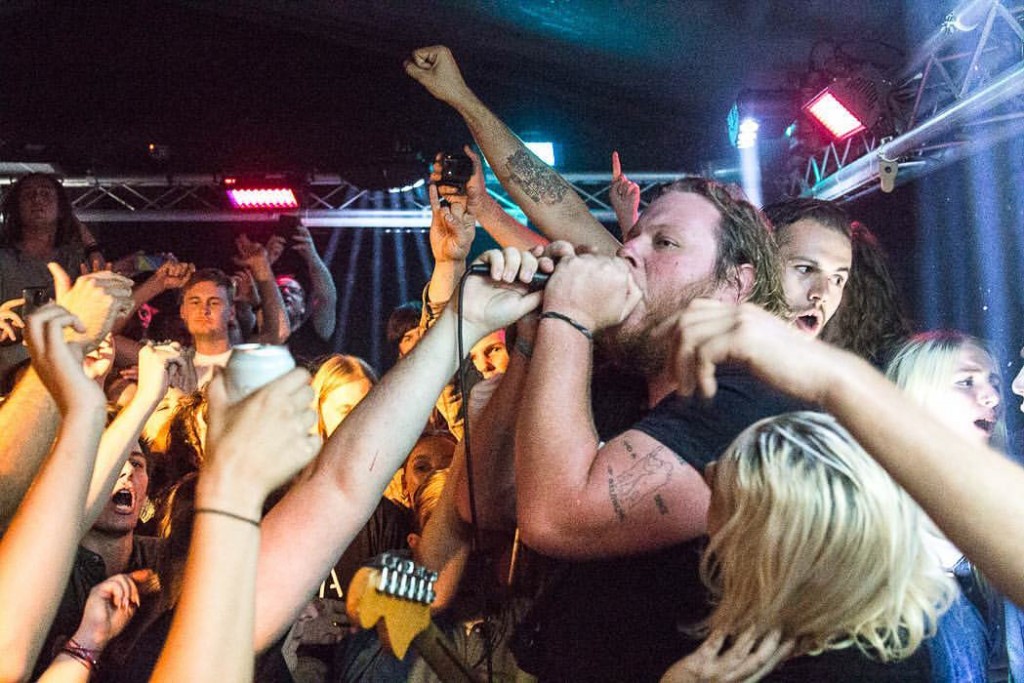
Photo credit: @brooketunbridge
I’ve dodged half a dozen eager teens trying to start a pit at an all-ages alcohol-free show in Seattle, and plucked the poster for his first ever album launch from the wall of the Birmingham Hotel, because I knew that night – where the bar served more drinks than ever before and the musty band room became a mass of fans and friends screaming every word to every song over his booming voice – was one to preserve. I’ve joined the jostle during a string of headlining shows at the Corner Hotel and one at the Knitting Factory in Brooklyn.
From where I’ve been standing, the crowd hasn’t so much changed in tone as it has simply grown in size, and with an increase in gross mass comes an inevitable uptick in the potential for gross behaviour.
The inevitability doesn’t excuse shitty behaviour or make a bruise fade more quickly, but it also doesn’t mean Wagner or his bandmates are to blame for it. The topic of “the Smith Street Crowd” is a Trojan Horse filled with more complex issues of masculinity and gender equality that one band cannot fully represent or solve, no matter how vocal they are about it.
“It’s pretty insane that anyone would think that any show is the right place to be fight-y or grope-y – especially with shows like ours, where people are saying, ‘don’t do that stuff’. I think I’ve dealt with it badly in the past; I’ve just got really fucking angry with people instantly, which is very easy to do, because it’s really fucking aggravating to see dudes getting into punch-ons at our shows.”
He doesn’t mention it directly, but I figure this is in reference to a show in Perth last June when he had to verbally break up a fight in the crowd. A few songs later he did the thing he tells me now he never wants to do again: police the fans, be pre-emptively hyper-sensitive, and lay down rules at the punk show.
In a trenchant twist, the soundtrack to that west coast brawl was ‘Death to the Lads’, a song that Wagner says is about the people men used to be: “It’s about growing up and changing and being … better.” He tells me the initial response to the name was met with pushback from some listeners, lads or otherwise. “People took [the name] as an aggressive thing to men, and other people took it as that’s not aggressive to men enough.”
“And I’ll fail but at least I’ll try”
Ever since Jess Schulman’s review of the 2013 Poison City Weekender in Beat magazine dropped – the one that pointed out that the festival’s line-up, on which the Smith Street Band was a headliner, included over 60 people playing in 20 bands across three days but only five women among that number – and was met with instant and fiery derision from people in the scene, this has been a touchy topic.
The active exclusion or unconscious omission of women in punk today is nothing new. It follows a well-worn historical precedent where they (we) are often unsafe or unwelcome in crowds, and anomalies on stage.
I get the sense that Wagner – whether actively or subconsciously – has internalised this and is not content with just singing songs about women and trying to make his shows safe for them, but also ensuring they are allocated prime real estate on his stages. “To say we disrespect women is a lot more damaging [than saying our crowds are violent],” he says. “It’s really scary. We’re the opposite: we go out of our way to be very supportive of everyone.”
I’m not interested in giving metaphorical cookies to influential men for demonstrating a basic awareness of sexism and gender inequality, but I also don’t think it’s warranted to paint him – or his band or his label – as the poster boy of the issue, as he tells me online critics are wont to do. On top of the privilege he was born with, Wagner is now the keeper of a stash of industry clout, and he’s using it to even the field.
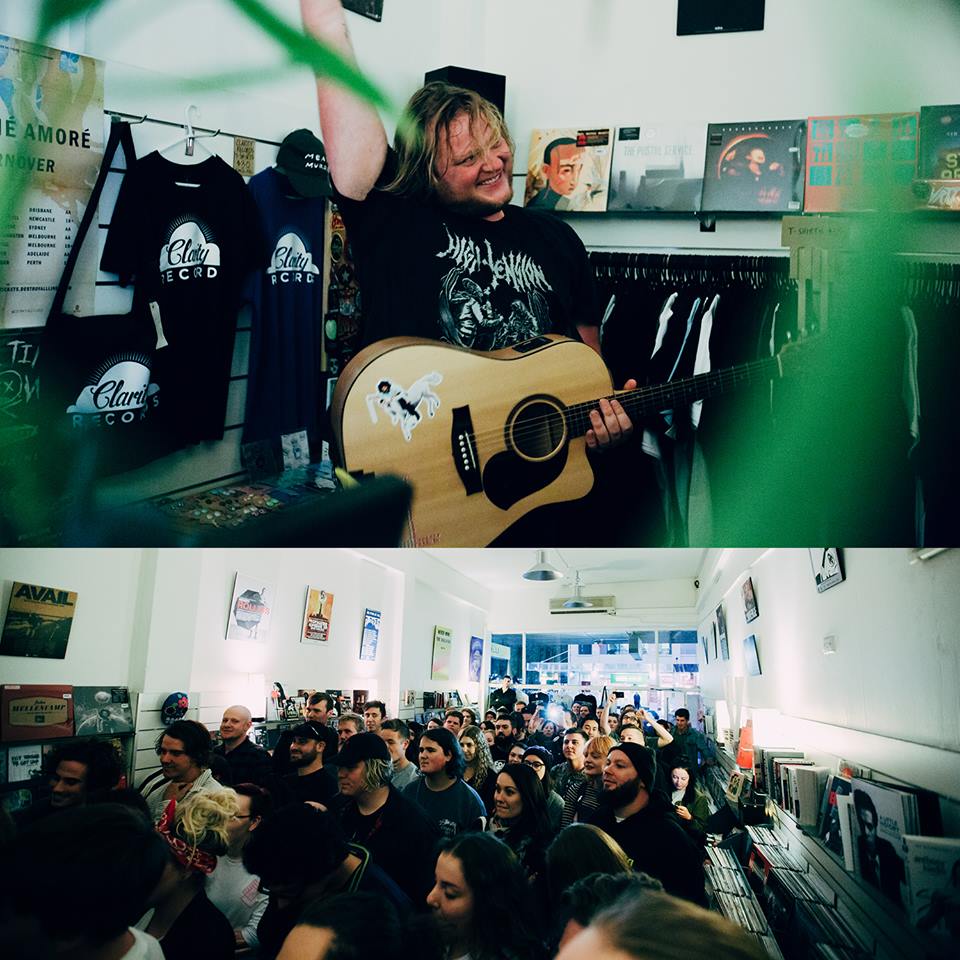
Photo credit: Dminch
He’s spoken out about wanting to see more women in the scene and against gendered violence at shows, and during a recent nationwide solo tour he was supported by a roster of female musicians – Lucy Wilson, Iona Cairns and Laura Stevenson – not for the first time. Since the Smith Street Band left the Poison City roster earlier this year and established Pool House Records (More Scared Of You Than You Are Of Me is the label’s first release), they’ve signed just one other artist: Jess Locke, the lo-fi Melbourne folk songwriter whose Bitter/Better tour kicks off in May.
But listing these examples feels defensive and simplifying. I know it, and so does Wagner, who might not have an answer to the unconscious gender bias that exists – has always existed – in the music industry, but at least is aware that the question exists despite how regularly accusations to the contrary are lobbed at him.
I wonder if addressing the issue of crowd violence and championing women’s inclusion in his scene early on carved the role of scapegoat out for Wagner; I can hardly think of another band – no matter how rowdy or appealing to bros they might be – that’s left tacky with the remnants of the label being stuck to them and peeled off, over and over.
Perhaps by doing what came naturally and what felt right, by cursing the trappings of and pointing a finger at the fragility of Australian masculinity, he painted a target on his own back, while the bands who keep mum on the topics were left safely out of the crosshairs, free to pretend that a lack of acknowledgement of any issues meant the issues disappeared altogether.
“We all work our dream jobs and I’m not lacking in ambition”
As well as deciding it’s sexist, he tells me that commenters have also decided the Smith Street Band are sellouts. And not just because their new album has charted at #3, behind Ed Sheeran and Tina Arena; “I remember when we signed to Poison City people were calling us sell-outs! We’re fuckin’ snotty punks; we’re not supposed to have ambition.”
“I should never admit it,” he says, “but we wanted this album to chart.” This truth, he knows, is the death knell for anyone in the punk or DIY music spaces to make, where scrappy legitimacy should be enough reward for making art. “We put a lot of work into promoting it and selling it because we wanted it to be commercially successful.” I point out that it’s weird that acknowledging your ambition is something he “should never admit”.
“I should never admit it, but we wanted this album to chart”
“It is weird! But we want to make a living off this band. I want to headline big venues and play at good spots on festivals.” There’s only so long your life can be “funded by five-dollar door charges and love”.
Every admission of success is preceded by a disclaimer about how uncomfortable it is to be making it. “All of my friends are in bands and I don’t want to call them and complain because … I’m doing what they want to be doing. You feel like such a cunt because you’re not going to call your friends and say, ‘I feel so sick before playing this show in Germany,’ cos they’ll be like fuck you! I want to go to Germany and play music.”
“Sometimes coming home feels more like leaving”
On the track ‘Passiona’, Wagner confesses: “I’m having panic attacks on German TV / This is not work ethic, it’s survival technique”.
While describing the destabilising place his life was in during the two years that this album captures — as his relationship was disintegrating at home, the Smith Street Band did two back-to-back overseas tours for a total of eight months, two of Wagner’s friends died and, he says, he didn’t sleep properly for close to three years — he was wracked with guilt for how difficult he found the reality of living the life he’d dreamed of.
“I went through these harrowing experiences, but at the same time I was doing everything I’d ever wanted to do. My whole life, I’ve wanted to be this exact person that I am now. So to be this exact person but still wake up with crippling depression is … just so annoying!”

The record is, from a certain angle, a collection of affirmations; it’s a line in the sand deciding what Wagner tolerated, accepted or entertained then, that he won’t again.
It’s firmly past-tense, a record of a time before he organised Skype sessions with his psychiatrist during overseas tours, before he established the nightly routine that makes him feel like himself when he’s far from home, before he worked up the confidence to insist that the band takes one true day off every week to preserve his energy and stability. “If it means we spend a bit more money and a few more days away,” he says, “we’ll do it. We can work super hard and still sleep and drink lots of water. It doesn’t have to be so hard.”
The conversations that lead to this weren’t easy – “We’re fuckin’ four men. It’s horrible for communication” – but they will contribute to the longevity of a band that Wagner sees as his future, even if that admission feels like it contradicts certain unspoken rules.
“I still live in this fuckin’ dumpy, falling-down punk house. Part of me is like Yeah! but part of me is like No! I want to live in a nice house! I think that’s part of growing up: it’s okay to be comfortable. It’s a similar thing to being okay with your own ambition. I would love to be able to buy a house off this band, and raise a family in the country. It’s okay to want that stuff. But as a punk you’re not supposed to want it.”
I ask if that quiet life in the country would limit the amount of material for future songs, if he makes good on the goal in ‘Passiona’ to “not write another record about the pain in my chest”, where will he find material?
“I’ve been sad enough in my life,” he tells me, “I could find something to write about.”
—
Brodie Lancaster is a writer and editor from Melbourne. She edits Filmme Fatales, a zine about women and cinema, and has contributed to Rookie, Rolling Stone, Vulture and Pitchfork. She is a senior editor at The Good Copy and a mediocre DJ.
